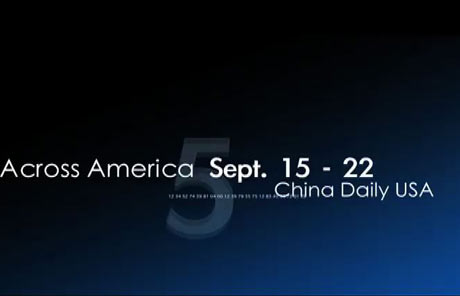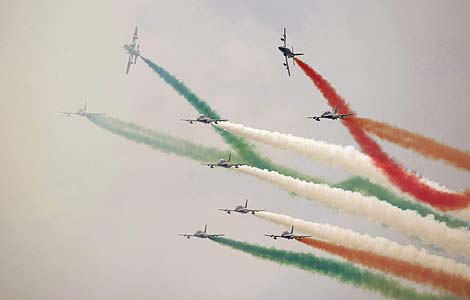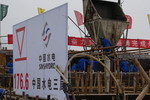Asian powers start key dialogue
Updated: 2011-09-27 10:01
By Lan Lan and Guo Ji (China Daily)
|
|||||||||||
Closer economic ties sought despite China-India political differences
BEIJING - China and India launched a Strategic Economic Dialogue on?Sept 26?in a sign that both Asian powers are seeking closer economic ties despite differences over issues such as South China Sea disputes.
Analysts said that the dialogue will strengthen economic development and their sway over international affairs, such as the European sovereign debt crisis.
"A closer economic relationship between China and India will not only have a profound effect on our two countries, but also boost the confidence of developing countries as a whole," said Zhang Ping, minister of the National Development and Reform Commission, at the dialogue's opening ceremony.
Montek Singh Ahluwalia, deputy head of India's Planning Commission, said that the dialogue would bolster economic engagement. The countries are already working closely together under groups such as the G20 and BRICS (Brazil, Russia, India, China and South Africa) and both need to address challenges together, he said.
A range of issues, from economic cooperation to the global situation, were discussed.
Agreement was reached on deepening investment cooperation, opening markets wider and improving the investment environment, according to a statement on the Indian embassy website in China.
Increasingly crucial sectors, such as railways, water conservation, the environment and renewable energy found the countries in broad agreement.
E B Rajesh, the Shanghai-based chief representative of the Confederation of Indian Industry, called the dialogue a "confidence-building platform".
"Communication between the two countries was insufficient ... such a dialogue is needed," he said.
"The dialogue will help Indian enterprises find more business opportunities in China," said Liu Xiaoxue, a researcher with the Institute of Asia-Pacific Studies at the Chinese Academy of Social Sciences.
It's also an opportunity for China to discuss hurdles its enterprises face in investing in India. For example, last year India imposed restrictions on imports of Chinese IT equipment citing security, victimizing major Chinese companies such as Huawei Technologies.
Increased economic ties will help stabilize the regional situation, despite recent differences over oil exploration in the South China Sea, some experts said.
According to recent Indian media reports, the country's state oil company, ONGC Videsh Ltd, plans to explore for oil in disputed waters.
"Both countries realize cooperation is more beneficial," said Yang Baojun, an East Asian professor at Peking University.
"Benefits from stronger economic ties outweigh their differences."
Bilateral trade has risen rapidly, Liu said.
In 2010 it stood at $61.76 billion, up 42.4 percent year-on-year, with exports to India growing 31.3 percent and imports increasing 51.8 percent.
In the first eight months of this year, trade amounted to $48.16 billion, up 19.4 percent compared to the same period last year.
The cooperation is significant, especially at a time when the global economy is battered by the European debt crisis, uncertain US economic prospects, inflation and capital inflows facing the emerging economies, analysts said.
The dialogue should address whether and how they could rescue Europe, Yang said. "They should first analyze the situation (in Europe) carefully before taking any cooperative measures," he said.
The one-day dialogue was initiated by Premier Wen Jiabao and Indian Prime Minister Manmohan Singh.
The second India-China Strategic Economic Dialogue will be held next year.













